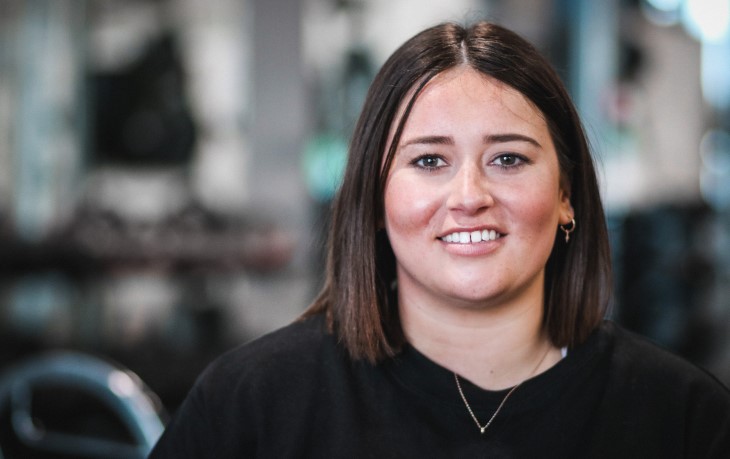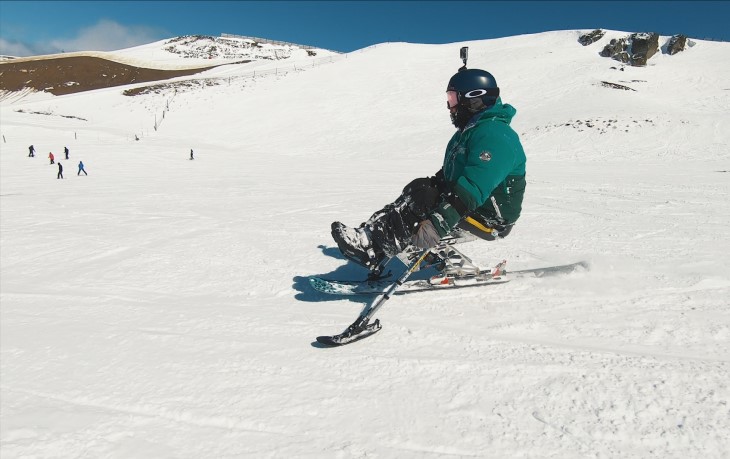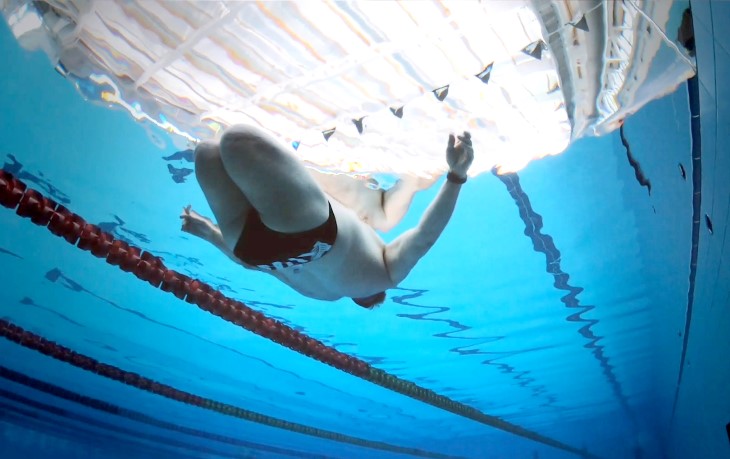Bailley's story: Flying high after devastating balcony collapse
Bailley Unahi’s young life changed forever when a balcony fell on her, but it didn’t stop her setting new life goals.
Bailley Unahi pushes off downhill, goggles glinting in the sunshine. She skis up and over a ramp, flies through the air, lands on the snow, and keeps going.
Bailley's spine was severed almost five years ago so she's doing all this on a sit-ski, a modified ski with a chair suspended above it. It's just one of her many achievements since the accident.
"I'm still the same person as I was before my accident. I just sit down a lot, do things a little bit different, but still the same person," she says in Wanaka where she's been for winter.

When the balcony collapsed
The day Bailley's spine was severed had started as a normal Friday.
Following lectures for her University of Otago degree, she and her rugby teammates had headed out on a flat crawl around Dunedin. They dropped into an outdoor gig by local band Six60, just for a couple of songs.
She was talking to a friend when a loud cracking came from above. "I looked up to see what the noise was. I didn't even realise what it was, didn't have time to make any move and then it crushed me – the balcony with all the people on it."
Bailley remembers feeling sore and not being able to move.
"I was struggling to breathe. My legs felt like they were floating, but I couldn't get up. All my friends were [saying] 'just stay there, just stay there.'"
Bailley didn't know it yet, but she would never walk again. The spinal cord injury had left her legs paralysed.
"It wasn't really until I came across a news article the day after my surgery and read that I'd never walk again – that was when I was first aware. To be fair, I didn't actually think it was true." She was just 19 years old.
'There are no barriers up on the mountain'
Up on the slopes, Bailley experiences the exhilaration of doing the same thing her able-bodied friends are enjoying.
"You just feel normal, you're just having fun, you're just skiing like everyone else. You've got that freedom. There are no barriers up on the mountain."
Bailley has used a wheelchair since 2016. She can't walk, but she can ski, cycle, drive, travel, study, live independently – and so much more. Her car is one of the ways we're supporting Bailley. It's adapted so that she can drive with hand controls rather than foot pedals.
She's also graduated as an occupational therapist from Otago Polytechnic. It's a career she knew nothing about until she had her own occupational therapy to help her recovery.
"When I went home [after the accident], I was trying to figure out what I wanted to do as a career, what would be feasible as a wheelchair user, what would be interesting for me. I came up with occupational therapy.
"And I'm so glad I had this accident because now I've studied something I was really passionate about, and I can make a difference in other people's lives.
"And it's really interesting. There's so much opportunity with it. It's such a broad career. You can work in mental health, acute physical, neuro-rehab, you can work overseas. It's pretty cool."

'Just treat me like normal'
Despite her obvious independence, including a humming social life, she still encounters daily challenges, often from other people.
"Most of the time, I forget that I'm disabled until… someone says something to you, something quite negative, or the physical barriers that you face - that's when you feel disabled."
Bailley says people assume that "because you look different, because you use a wheelchair, that your life must be terrible. Many people are like, 'I'm so sorry you're in a wheelchair, I wish you could walk again.'
"But I still live a very good life," she says emphatically. "And I've walked before, I'm not really missing out that much. Sometimes it's frustrating when you can't get into a building, or just walk down to the beach, but it's not the end of the world."
She has a simple request: "Just treat me like normal."
If you're tempted to start pushing a person in a wheelchair up a slope, just remember to ask first. They may not need any assistance. "You wouldn't go up to a person walking up a hill and start pushing them without asking them. Maybe just ask first," says Bailley.
"Every day something is chucked at you that is not really expected. The biggest challenge is people's perceptions of you. Sometimes you need their help, and you'll ask them, but then most of the time I'm like, 'no, I want to be independent, don't treat me any differently."
Podium dreams

That independence extends to her sporting dreams. Bailley's in the high-performance development programme with Snow Sports NZ. She's up on Cardrona ski field three days a week with a coach and working out at the programme's Wanaka gym.
Her goal is to one day represent New Zealand at the Winter Paralympics. It’s a long way from her first sit-skiing lesson in 2017 after she was invited by sporting organisation Parafed Otago to give it a go. She chuckles while recalling that in the beginning, she fell over a lot.
Bailley used to play rugby, netball, basketball and touch before the accident. "It's a big part of being social, being fit, and it was big part of growing up and my identity. And that kind of got taken away from me. It was a big shock because I couldn't really play the sports I used to play." Skiing has given that back to her.
Find out more about parasport in New Zealand
Part of her training involved three months in an adaptive ski programme in Canada's Rocky Mountains. COVID-19 restrictions brought her home in early 2020. She's grown to love the sport.
"My teammates push me to my limit, really. Everyone I've met, they're pushing me. I guess I hold myself back a bit, because I'm, like, 'no, I can't do that, that's impossible.'
"But If they think I can do it, I give it a go. It doesn't always work out, but most of the time, it does."
We'd like to sincerely thank Bailley Unahi for sharing her story with us.
We'd also like to thank Snow Sports NZ and Cardrona Alpine Resort for permission to film on location. We're a Community Partner of Paralympics New Zealand and encourage participation in Para sport at all levels.
ACC helps over 2 million New Zealanders a year recover from injury. And we invest in injury prevention programmes to help people stay safe.



